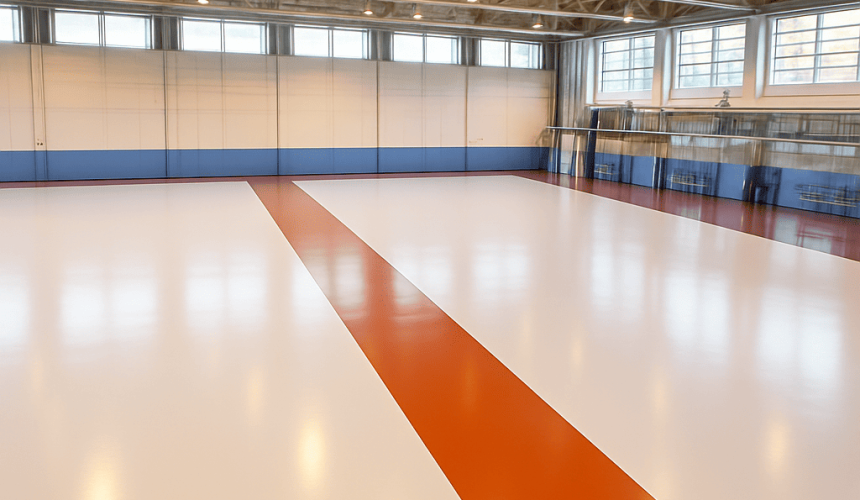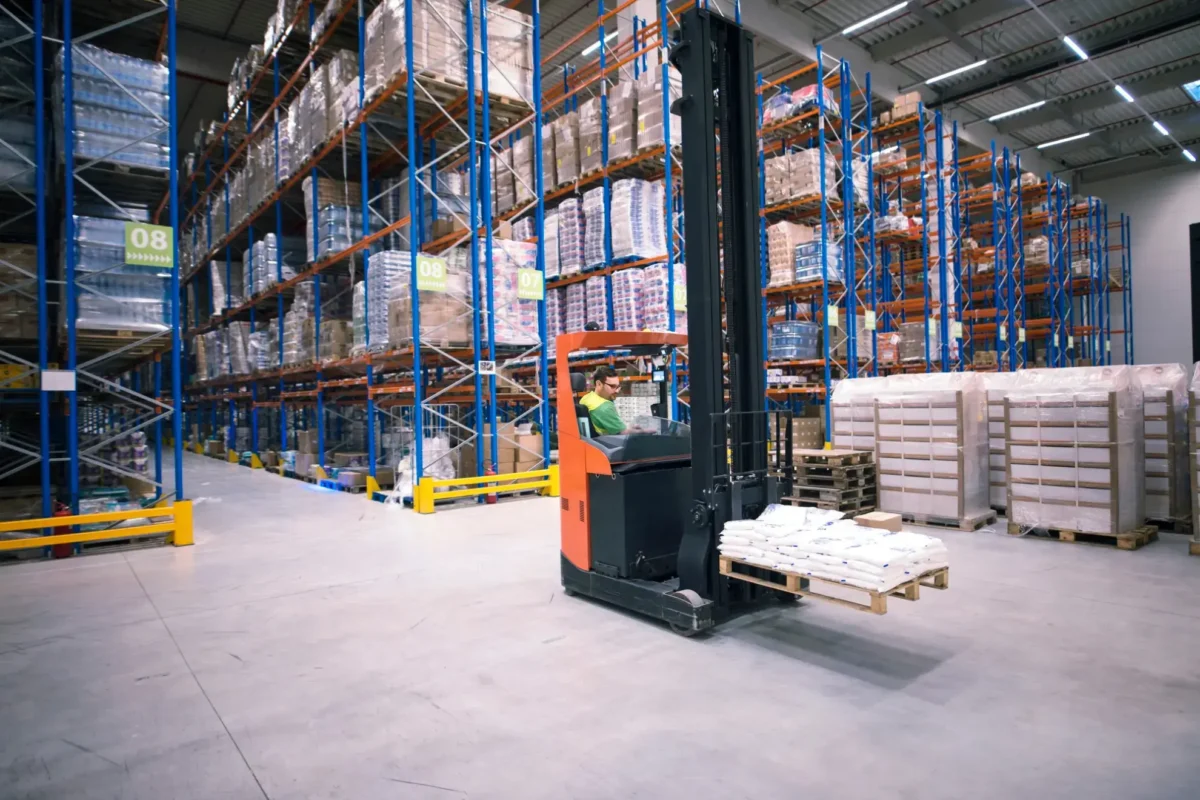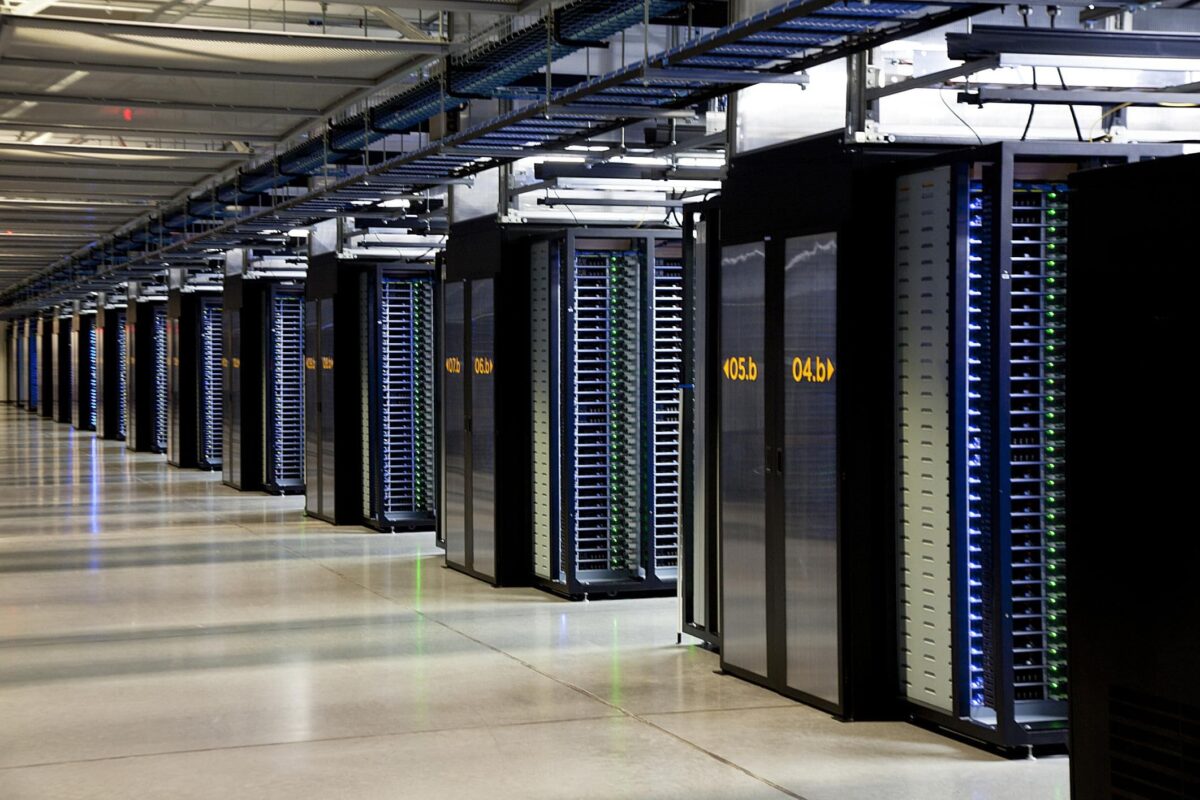Advanced Floor Coatings/Surfacing

During the last thirty years, the protection of concrete floors has gone from essentially nothing to a fairly sophisticated process of some type of protective coating or surfacing. The main purpose, of course, is to provide protection to the slab from deterioration or contamination, or to provide some added benefit such as aesthetics, wear, non-skid, chemical resistance, and ease of maintenance, physical performance, and a myriad of other properties. We must remember that no other surface in a building/structure takes more abuse than floors, regardless of the type of building, whether it is domestic, industrial or commercial.
Most people don’t bat an eyelid at the idea of coughing up a few thousand rupees for decorating their house, yet they don’t consider the importance of their floors. Naturally, there are certain aspects of a building or house that are prioritized over others; usually those that make prettier. Having high quality and durable floor coating put in is really crucial for the safety and maintenance of a house, or commercial/industrial building. Neglecting this can mean facing major problems in the future. This article discusses the importance of advanced floor coating.
Floors are subjected to just about every kind of abuse – impact, abrasion, chemical attack, and thermal shock. Concrete floors are not designed to take this continual abuse. Concrete floors are porous and tend to create dust from wear and abuse. They are also subject to abrasion and chemical attack. It’s for this reason that all concrete needs some sort of protection regardless of where it’s located. The problem, in the overall picture, is to determine what type of protective material to choose for the various conditions.

This article does not concern resilient tile, ceramic tile, carpet, or wood,which are placed on top of concrete floors. These do add a benefit, but are primarily used aesthetically for residential and highly commercial areas. We are focusing on coatings that are bonded directly to the surface and offer long-term protection and may or may not have some aesthetic value.The problem for most decision makers today, whether it is architects or facility managers, is to choose the most effective material and application that will result in the best performance and lowest life-cycle cost. It is increasingly clear that these individuals must rely on knowledgeable people to assist in proper selection, application, and maintenance of the floor coating. The flooring specialist can guide the owner in proper material, application, and long-term performance, thereby reducing the long-term cost of floor maintenance.Total floor protection should be part of any study or evaluation for new or old concrete floor protection. The thorough process for selecting a coating or topping system, the writing of a detailed specification, and the preparation of detailed application procedures and final acceptance criteria will give the owner a basis for choosing the right system. There is a very complete selection process to narrow the search for the right product and application for floor coatings. Remember, you must not only select the material, but also a total system in terms of application, total thickness, and aesthetics.
Various Types of Flooring Systems
Epoxy Floor Coating/Screeding:
Epoxy floors and epoxy coatings are becoming increasingly popular for use as commercial and industrial flooring. There are a number of different types of epoxy coatings that can be used on floors, including self-leveling epoxy coatings, self-dispersing epoxy coatings, mortar epoxy coatings, graveled epoxy coatings, epoxy terrazzo coatings, epoxy antistatic coatings, and vapor barrier epoxy coatings. Each of these types of epoxy coatings offers distinct advantages when compared to the others. For understanding more about these flooring systems, or to determine which epoxy coating system is best for you, please contact experts at Multichem Group.
Our epoxy coatings are ideal for a variety of types of commercial and industrial buildings, including airplane hangars, manufacturing facilities, distribution facilities, warehouses, residential garages, commercial garages, pharmaceutical plants, and laboratories. We offer the application of epoxy floor paints, which result in the creation of a hard-wearing, durable surface, as well as epoxy vapor barrier application to prevent moisture penetration through concrete subfloors.
Self-Dispersing Epoxy Coatings for Floors:
This type of epoxy coating is commonly used in areas that receive frequent forklift or heavy truck traffic as it has very good mechanical strength. Another type of this durable epoxy coating is self-dispersing epoxy with quartz sand. This type of epoxy coating is commonly used in food-processing industries or other locations where liquids are present because it has good anti-slip characteristics.
Self-Leveling Epoxy Coatings for Floors:

Self-leveling epoxy coatings are easy to install over new and old concrete floors as they level easily, creating a seamless and smooth surface. Self-leveling epoxy coatings can be used in kitchens, dining rooms, storage places, garages, warehouses, office buildings, and more. FloorScreed EP (L) is one such product for use in such areas.
Mortar Epoxy Coatings for Floors:
This is the strongest of all epoxy floors, e.g. FloorScreed EP (H). This type of epoxy coating is commonly used in heavy industry applications and can also be used to repair cracks before laying other types of epoxy floors.
Graveled Epoxy Coatings for Floors:
Graveled epoxy coatings are the most decorative epoxy flooring choice, and they can be used for adding logotypes, brand marks, and decorative details to floors.
Epoxy Terrazzo Floor Coatings:
This type of epoxy flooring is very decorative and easy to clean. Epoxy terrazzo flooring, FloorScreed EP (T), is commonly used in large areas, including hallways and entrances of commercial buildings, schools, and office buildings.
Epoxy Antistatic Floor Coatings:
This specialized epoxy coating is designed for use where static-sensitive electronic components are in permanent use, and a static-free environment is most important, such as in laboratories, hospitals, and electronics equipment manufacturing plants. FloorShield EDS is the product in this range.
Vapor Barrier Epoxy Coatings:
Liquid epoxy vapor barriers are applied directly over concrete floors to provide an impenetrable surface that reduces vapor transmission to nearly zero. These epoxy coatings are typically applied prior to adding the final flooring surface, including sheet vinyl, tile, carpet, or hardwood floors.
Epoxy Flaked Floor Coatings:
This is not exactly a type of epoxy flooring, but rather a style of applying epoxy coatings. With this epoxy flooring technique, multi-colored flakes or chips are added over the epoxy coating while it is still wet in order to provide a decorative finish or look. FloorGuard EPV is the right choice.
Polyurethane Floor Coating:
Polyurethane floor coatings have been in commercial use for more than 30 years. Flexible, hard and tough coating materials are formulated with polyurethane raw materials for application in many different market segments. Polyurethane coatings can be customized to yield property profiles that suit the individual floors.
As shown, polyurethane coatings may range from highly elastic (for membranes, floors in sports facilities) to hard and highly resistant to chemicals (for chemical production plants).
Typical applications of polyurethane are:
a. One and two component primers and sealers,
b. Floor coatings for sports facility’s membranes, e.g. waterproofing membranes,
c. Industrial floor coatings ranging from tough yet flexible to hard depending on the requirements of construction and water protection regulations.
d. One and two component synthetic resin mortars and colored sand mortars.
Instrumental in the success of polyurethane system in these applications are the following properties:
• Hard curing even at low temperatures
• Good adhesion
• Adjustable hardness
• Excellent chemical resistance with hard coatings
• Crack-bridging with elastic and tough yet flexible formulation
• Seamless application, also with elastic and tough yet flexible membranes

Hence PU coatings can be designed to have wide range of requirements fulfilling capacities. For example, Floorkrete PU polyurethane coating features the following:
• Polyurethane floor coating with unsurpassed stain/chemical resistance
• Excellent abrasion resistance
• High wear resistance
• High gloss to satin finish
• Excellent gloss retention
• Quick turnaround time
• Variety of color options or select your own custom color
• UV light resistant polymer coating
• VOC compliant
A polyurethane coating is generally recommended for areas exposed to chemicals with a need for cleanability including:
- Aerospace Industries, Hangars
- Automotive Facilities, Auto Service
- Chemical Plants, Clean Rooms
- Furniture Plants, Meat Packers
- Printing Plants, Dock Areas (excellent wear non-slip floor coatings)
- Trenches, Military Facilities
Polyurethane Floor Coating Benefits:
Like epoxy, polyurethane is a thermosetting polymer as well and is considered a high-performance coating. Of the different formulations available, aliphatic polyurethane is the desired choice for garage floors. Though they are approximately 60% to 70% solids depending on the manufacturer, a polyurethane coating is only about 2 to 3 mils in thickness and can’t be adjusted as with epoxy. Don’t let the thinner dry film thickness fool you, however. Aliphatic polyurethane has more flexibility than epoxy, and it is this flexibility that aids in absorbing impacts better. It is also much more abrasion resistant, in fact, some manufacturers claim that the wear resistance of polyurethane over epoxy is almost 3 to 1. The resistance to chemicals is better than epoxy as well and includes solvents such as methylene chloride, which is the primary ingredient in paint stripper.
Another advantage of polyurethane over epoxy is that it is U.V. stable. This means that it won’t yellow like epoxy does when exposed to small amounts of sunlight. The surface of polyurethane is not as hard as epoxy, but it is much more scratch resistant, can tolerate larger temperature swings, and handles humidity much better. It is also available in different finishes from satin to very glossy. Though polyurethane has many advantages over epoxy, it does have less bond strength to concrete and its thin dry film thickness will not work well as a self-leveling coating to fill in small cracks and divots in the surface.
This is yet another type of flooring system available for floor protection. As the name suggests, one of the binders of flooring product is cement, with one or more than one other resin included into the product. These products are normally more economical compared to epoxy and PU floor products.
Cementitious flooring comes in
a. Self-Leveling flooring (Underlayment and Topping)
b. Screed
c. Floor Repairing Product
Self-Leveling underlayment gives smooth, flat surface—ready for floor goods fast. Multichem’s underlayment’s, Level-Top, can turn a rough, irregular surface into one that is perfect for carpet, wood, ceramic tiles, vinyl—virtually any floor covering. Efficient application and fast drying time keep you on schedule.
Level-Top provides a level surface on otherwise out-of-level concrete slabs in apartments, commercial buildings, and homes worldwide.
For existing floors, or the floors needing revamp or new life, Level-Top SuperHard provides flat surface. Whereas Microtop (thin leveling product) provides thin repair of the floor. Cementitious screeds are manufactured in single component, such as Floortop, or in two components, such as FloorScreed PL, all products based on cement, fillers, and resins.
Under FLOOR HARDENERS, there are dry shake floor hardeners in powder form, meant for application on green concrete floors, such as FloorHard M and NM, and liquid form, used for existing concrete floors such as FloorHard Crystal and Diamond.
Decorative Concrete System is yet another type of flooring system, well known in advanced countries. In India, now many flooring specialists have started using the above concept.
There are some more different types of flooring products available for floor owners to look for. Whatever is the flooring product we look for, one should always decide based on end usage of the floor.
For further details contact:
Multichem Industries Pvt. Ltd.
Phone No: +91 9619091025
E-mail: info@multichemgroup.net
Web: www.multichemgroup.net/ www.floorkrete.com





